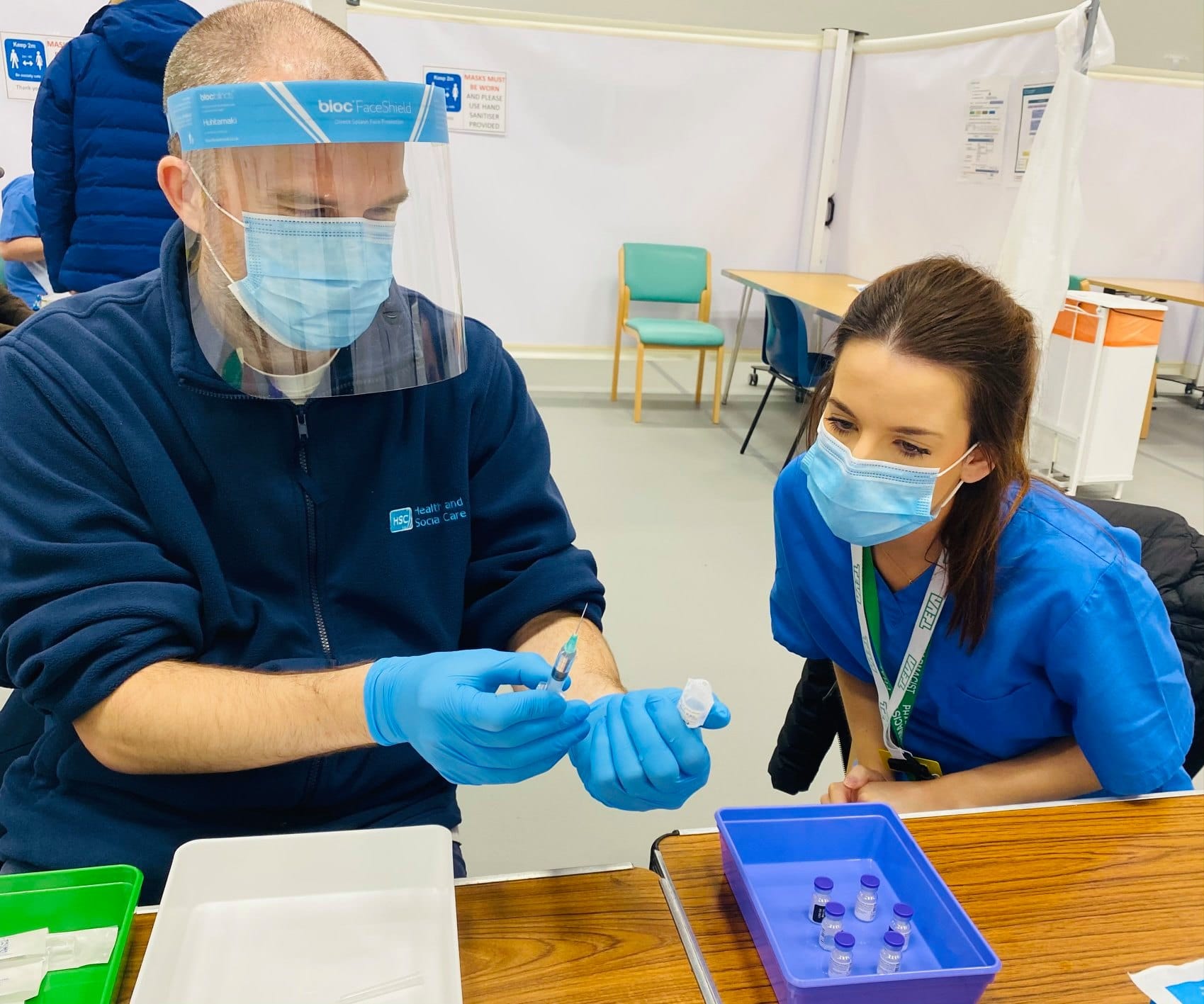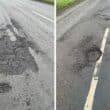
There has been no further Covid-related deaths reported by the Department of Health in Northern Ireland today (Tuesdayday).
That’s the second consecutive day of no deaths, according to the official dashboard. It’s the first full day (midnight to midnight) since April 1 where no deaths have been recorded.
The Armagh City, Banbridge and Craigavon Borough Council area accounts for 285 deaths overall. Newry, Mourne and Down District accounts for 165 deaths and Mid-Ulster 202.
The overall total number of deaths recorded by the Department remains at 2,129.
There were a further 112 – up 15 – positive cases reported in the last 24 hours with 18 in Armagh, Banbridge and Craigavon – the second highest in NI. There was also a further eight in Newry, Mourne and Down and another 16 in Mid-Ulster.
A total of 2,607 individuals were tested.
There are 77 people – seven less than yesterday – in hospitals across Northern Ireland as a result of the virus, seven – down one on Sunday – of whom are in intensive care units.
There are 10 Covid inpatients across Southern Trust hospitals, five of whom are currently in Craigavon.
There are currently 36 ICU beds available in Northern Ireland.
Meanwhile, Health Minister Robin Swann has detailed his ambitions for the re-building of Northern Ireland’s health service, while stressing the need for sustained investment to deliver the plans.
In a keynote statement to the Assembly, the Minister said: “I am absolutely determined to put this right. But as I will argue today, I cannot do this alone. I need the support of this House and my Executive colleagues if we are to address our absolutely dire waiting lists.”
Mr Swann informed MLAs that detailed plans are being finalised on both waiting times and cancer care. These will shortly be issued for public consultation, as will a review of urgent and emergency care.
Today also sees the publication of the latest Trust rebuilding plans for health and social care, covering the period April to June.
The Health Minister said the COVID-19 pandemic has had a “significant impact” on “our already appalling waiting lists”. It had also “highlighted serious long established fragilities in our health and social care system, especially in terms of staffing capacity.”
He told the Assembly: “Our health service prides itself on being available to all, free at the point of access. I will today contend that we are in grave danger of undermining this essential feature of our health service. With ever growing waiting lists – I would question whether all of our citizens have adequate access to the health services they need?”
The Minister continued: “To address this burning issue, I will in the near future be publishing for consultation a cancer recovery plan, an elective care framework and the urgent and emergency care review. Our great staff want us to be ambitious about the future of health and social care.
“They want us to build back better, to learn the lessons of the pandemic in terms of capacity, resilience and investment. I share that ambition 100 per cent. I believe the people of Northern Ireland do too.
“However, without a significant and recurrent funding commitment from the Executive, I fear that we will be severely restricted in our ability to deliver. We will be fighting the scourge of waiting lists with at least one hand tied behind our backs.
“We must start putting this right. It is a long-term task and it needs long-term, recurrent funding.”
Describing the current single year budgetary position as “extremely disappointing”, Mr Swann stated: “The present funding model which we operate within is not fit for purpose. What is really needed is a multi-year budget and unfortunately the Executive hasn’t received this from Westminster.”
He continued: “To properly put waiting lists right, we will clearly need more staff in our health service. But how can you recruit additional people to the workforce if there’s no certainty you’ll have the money to keep paying them next year?
“How do you sign up more young people for the required years of training on the basis of single year funding?
“I recognise there are many pressing rival demands on the public purse in Northern Ireland. Huge issues face every Department. I fully accept that the Executive has limited room for manoeuvre in budget terms. Decisions are taken in London and we have to play the cards we are dealt.
“However, I cannot think of a more pressing issue facing us than waiting times. It cries out for action. It is a daily rebuke to the standing of this House and to the reputation of politics.
“It leaves thousands and thousands of our people in avoidable pain – our fellow citizens, our neighbours. We owe it to them to do much, much better.”
The Trust rebuilding plans include elective (planned) care being prioritised regionally. Mr Swann told MLAs elective surgery will be prioritised in line with greatest clinical need, and will not be dependent on a patient’s postcode.
Detailing the impact of the COVID-19 pandemic, the Minister said: “It was not lockdown that added to waiting lists and led to much-needed operations being postponed. It was the virus. Our system, like systems all over the world, simply could not maintain a normal service, given the surge in patients requiring life-saving and immediate intervention. Staff had to be redeployed. Agonising choices had to be made.
“This was not about prioritising one condition over another. It was about providing care to the sickest patients quickest. It was about maintaining ICU care for everyone who required it, COVID and non COVID patients alike.”
In relation to cancer treatments impacted by the pandemic, the Minister said “the vast majority of patients that experienced a delay from January to March this year have since had their treatment completed or have a confirmed plan in place.”
Mr Swann also detailed actions taken to protect elective services as much as possible. These have included establishing Northern Ireland’s first regional Day Procedure Centre at Lagan Valley Hospital. This Day Procedure Centre has been providing support for the region, particularly for urgent cancer diagnostic work.
Similarly, surgeons from across Northern Ireland have been travelling to the South West Acute Hospital in Enniskillen to provide surgery that could not be provided at other sites due to the numbers of COVID positive inpatients. Northern Ireland-wide regional approaches to the prioritisation of surgery and to orthopaedic surgery have also been progressed.
The Cancer Recovery Plan being finalised is entitled “Building Back; Rebuilding Better”. It will make recommendations to redress the disruption to cancer services caused by the COVID-19 pandemic. The Recovery Plan will be aligned with the longer-term Cancer Strategy being developed for NI and will focus on a three year period.
In addition, an elective care framework will be published shortly. The purpose of this framework is to set out both the immediate and longer term actions and funding requirements needed to tackle waiting lists.
The Minister said that while one-off emergency COVID funds “cannot provide the long-term fix that our health service requires”, they have proved vital over the past 12 months. He confirmed plans for cancer and mental health funds, as well as a carers fund and an allocation to support staff within Trusts. Further details of these allocations will be provided in the coming days.
“All of these allocations have been made possible as a result of the one-off COVID funds made available to Northern Ireland in 2020/21. I would of course love to be able to allocate further funding, on a recurrent basis, to all these areas. But as ever, available recurrent funding is not keeping up with levels of demand and need,” the Minister added.






